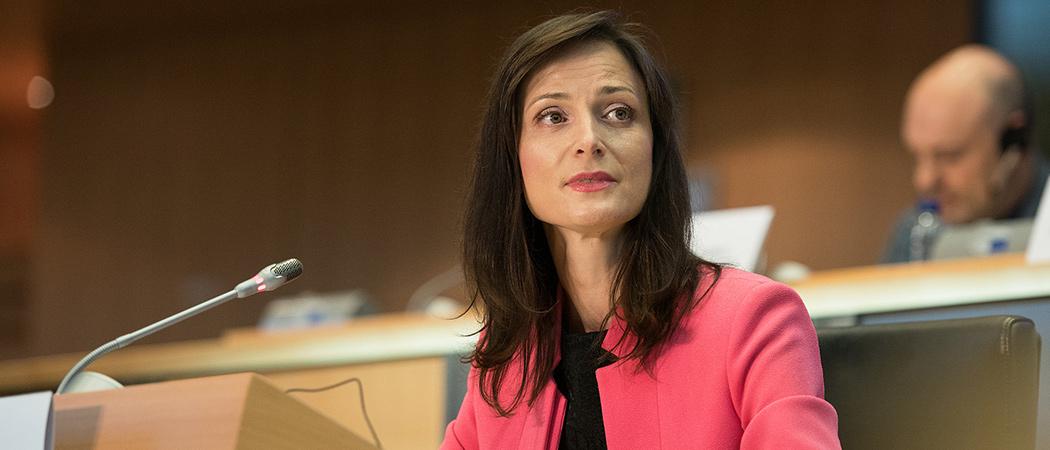The strategy, due to be announced in January, will look to strengthen institutional ties, enabling the sharing of resources. The rollout of a European student card recognised on all campuses will provide simplified access to student services

Mariya Gabriel, Research Commissioner. Photo: European Union
EU research commissioner Mariya Gabriel outlined the upcoming strategy for European universities at the European Education summit this week, describing how it will boost cross-border cooperation and enable universities to play a leading role in delivering the EU’s green and digital policies.
“Our strategy will also announce some flagship initiatives and the next steps,” Gabriel said. “These are the development of a European degree and the legal statute for alliances of universities, the full deployment of the European student card initiative, and last but not least, the further rollout of the European universities initiative.”
Together with the strategy, due to be published in full in January, the Commission will present a proposal for a non-binding pact aimed to support more effective cooperation between Europe’s higher education institutions. The intention is “to take action, where appropriate, for more flexible approaches, supporting and enabling closer transnational cooperation, including conjoined educational and research activities,” said Gabriel.
The long-awaited strategy draws on the Commission’s consultations with more than 5,000 higher education institutions, which have been vocal about what they want to be included in the plan.
“The overall goals of such a strategy should be to contribute to improving the framework conditions for universities to enhance their missions and thus best serve society,” the European University Association’s policy input paper said.
Jan Palmowski, director general of the Guild of European Research-Intensive Universities, said the strategy should underline the value of academic freedom and institutional autonomy, as well as set an ambitious public spending target.
Building blocks
Gabriel named the three building blocks of the strategy, highlighting the role of universities in supporting “our European way of life” through a focus on quality, inclusion and respect of democratic practices and academic freedom.
Second, she wants the strategy to enable universities to play a key role in the green and digital transitions, by developing green tech solutions and equipping Europeans with skills which will be needed in the future economy.
Third, the Commissioner says the new strategy will help boost European universities’ global standing. “Through sharing practices and resources between universities of diverse strengths, all institutions benefit and this will in turn, boost [Europe’s] attractiveness, not only as a study and research destination, but also as an attractive partner for cooperation in education, research and innovation,” said Gabriel.
University alliances, which Gabriel said will be further rolled out under the new strategy, will play a key role in boosting such cooperation.
The Commission launched the latest €272 million Erasmus+ call to reinforce existing and create new university alliances at the end of November.
The initiative, which kicked off in 2019, aims to help higher education institutions cooperate and jointly boost their performance and international competitiveness. There are currently 41 such transnational alliances involving 280 universities in the EU, Iceland, Norway, Serbia, Turkey and the UK – and university associations have expressed support for further development of the programme.





 A unique international forum for public research organisations and companies to connect their external engagement with strategic interests around their R&D system.
A unique international forum for public research organisations and companies to connect their external engagement with strategic interests around their R&D system.